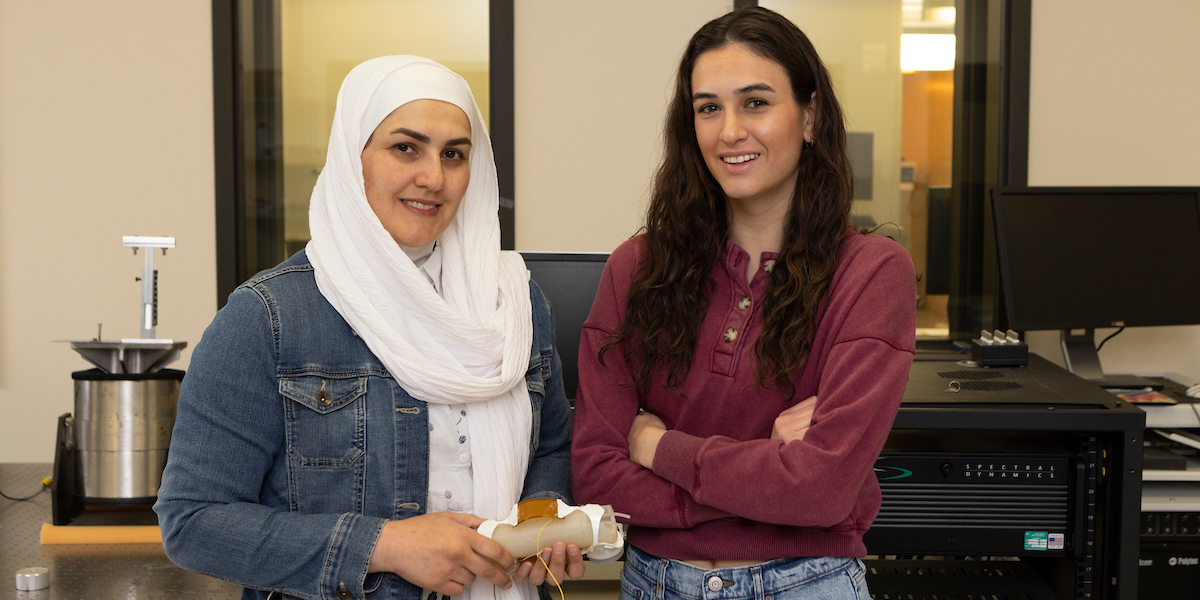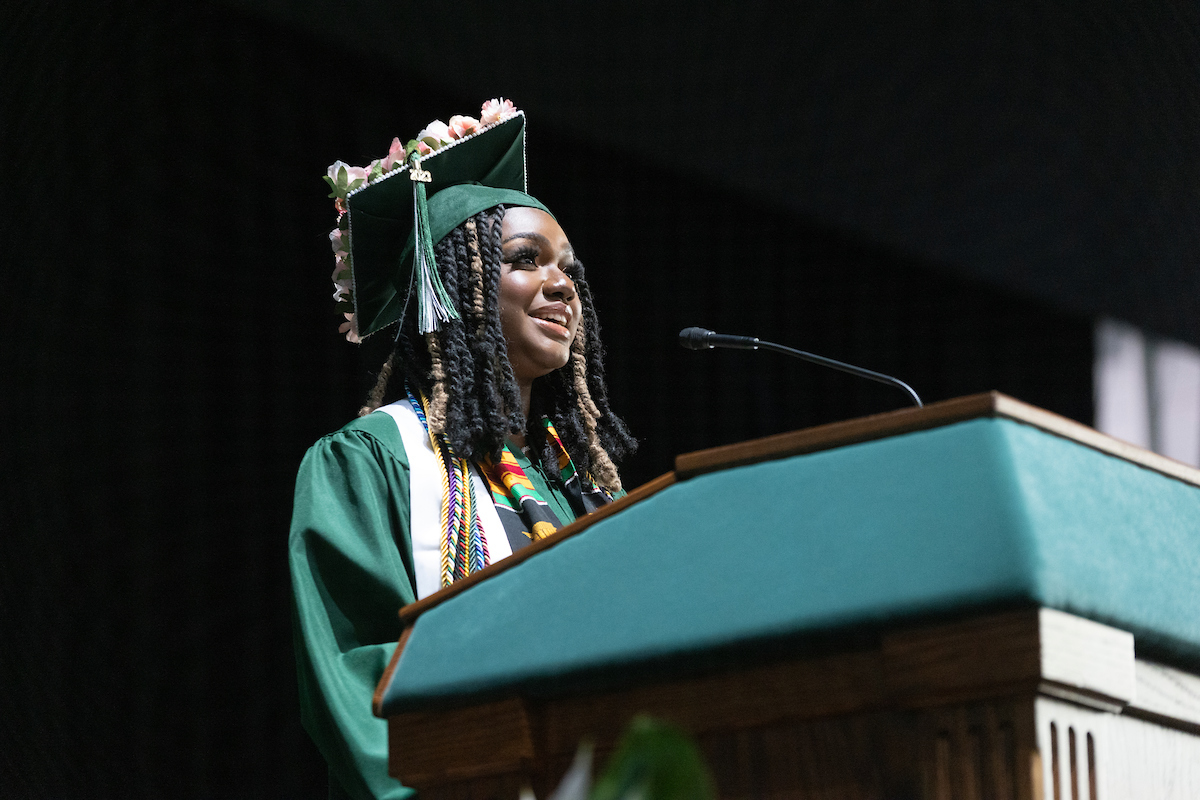More women choosing mechanical engineering at Watson College
An increasing number of women are breaking down barriers and making significant contributions

According to the U.S. Census Bureau, women went from 3% of the engineering workforce in 1970 to 15% in 2019. However, in mechanical engineering, they make up only 8.8% of the workforce, while men still dominate at 91.2%.
At Binghamton University’s Thomas J. Watson College of Engineering and Applied Science, an increasing number of women are breaking down barriers and making significant contributions to the field of mechanical engineering.
Shahrzad “Sherry” Towfighian, an associate professor and the graduate studies director for the ME Department, focuses her research on micro-electro-mechanical sensors and energy harvesting, with a particular interest in the application of dynamical systems in biomedical devices. She has received funding from the National Institutes of Health (NIH) and the National Science Foundation (NSF).
Towfighian views her research as a way of giving back: “There is a world of possibilities open to me to contribute to the welfare, safety and health of human beings.”
She credits the growth of women participating in mechanical engineering to a rise in education: “Over the years, I have seen more female students in my classroom, from six or seven in 2013 to nearly 25 in 2023.”
As more female students pursue engineering degrees at research universities, there is hope that mechanical engineering will continue to be more gender inclusive. The leadership of prominent female engineers such as Towfighian has attracted more women to the field, and the University’s female enrollment in mechanical engineering has gone up 8% since 2012.
One of Watson College’s top graduates in mechanical engineering, Bryana Thompson ’23, hopes that she will go on to motivate future generations of women to pursue careers in mechanical engineering.
“I want other women to see someone who looks like them excelling in their field,” said Thompson, who spoke on behalf of the Class of 2023 at Watson’s Commencement in May.
As the president of Binghamton University’s chapter of the National Society of Black Engineers in her senior year, Thompson stresses the importance of continued change.
“Women, especially women of color, are often overlooked in the classroom, and although there has been some improvement in the past 10 years, we are far from achieving true equality in the field,” she said. “I want to provide more safe spaces where women can feel comfortable pursuing their educations. That’s how we can propel change.”
Sara Aghazadeh, MS ‘23, began her educational journey in Iran with a bachelor’s degree in physics, and as a master’s student, she worked with Distinguished Professor Ronald Miles on her research.
Recently awarded Watson College’s Katie C. Root Award for her exceptional research, Aghazadeh said her eagerness to study science and engineering began when she was just a child: “It was my dream when I was a kid. I wanted to be an astronaut and reach the spaces beyond access.” Fulfilling her childhood dreams, she decided to pursue mechanical engineering as a graduate student.
Acknowledging the difficulties that women often face in STEM environments, Aghazadeh knows that gender can be a barrier. However, she sees a bright future for women entering the field and said that the most important thing is believing in yourself: “Women can do anything just as well as men — they just need to tell themselves they can.”
Another graduate, Jessica Abreu ‘23, worked on developing technology that will help people with physical disabilities walk. She is happy to be seeing a positive change for women: “I went to an all-girls high school where engineering wasn’t taught. Going into college, I felt like a lot of people already knew things I had never seen before. It’s nice that schools like Binghamton provide opportunities for girls to learn more.”
Both Abreu and Aghazadeh see research institutions as crucial spaces for the advancement of engineering education for women.
“There have been so many great faculty that have been extremely helpful in letting me try things I haven’t before,” Abreu said. “Knowing that it’s been a predominantly male field for so long, I’m happy to be surrounded by more women pursuing this as a career.”
Aghazadeh agreed: “I think one of the best things about Binghamton University is there is no difference between men and women in the Mechanical Engineering Department. It’s a friendly environment, which is necessary for inclusivity.”
As more women enter mechanical engineering, graduates like Sharyn Gerber ’23 are now competitive in historically male professions. Pursuing two degrees — a BS in mechanical engineering and a BS in business administration — Gerber offers an excellent example of female leadership in STEM fields that will inspire generations of women to come.
“It’s important that other young girls and women in mechanical engineering stick together,” Gerber said. “It’s a great way to build a successful support network.”
Although there is still a gender gap in the mechanical engineering field, women like Towfighian, Thompson, Aghazadeh, Gerber and Abreu exemplify increasing gender equality in STEM spaces. With the continued help of research institutions that foster more opportunities, more young girls will be able to live out their dreams of becoming mechanical engineers.

